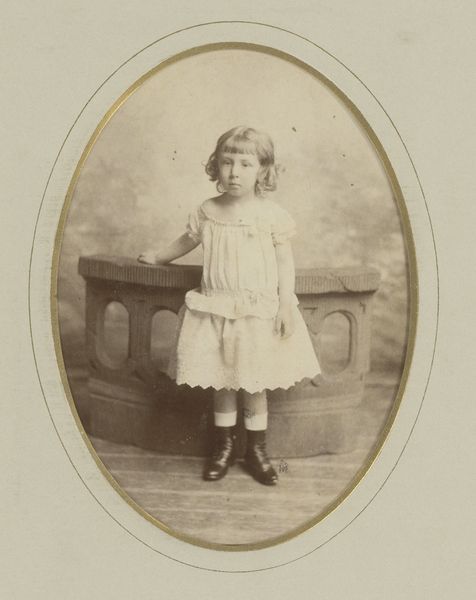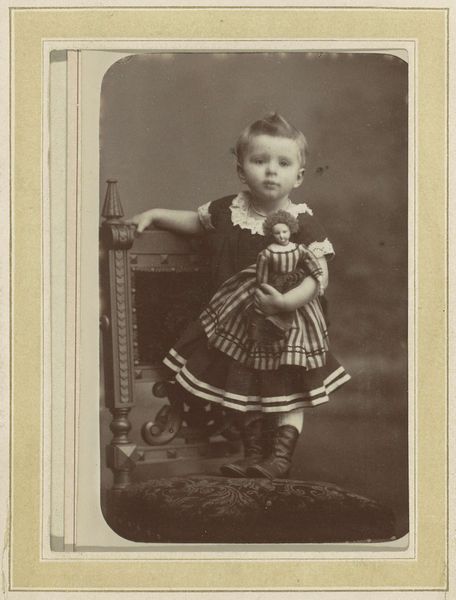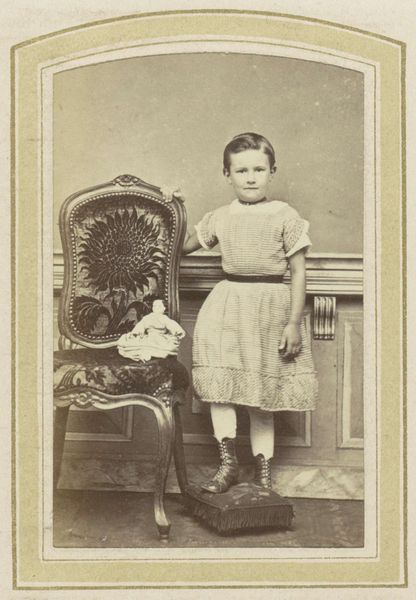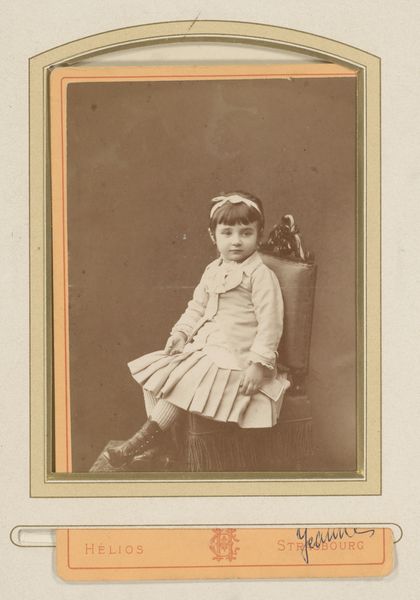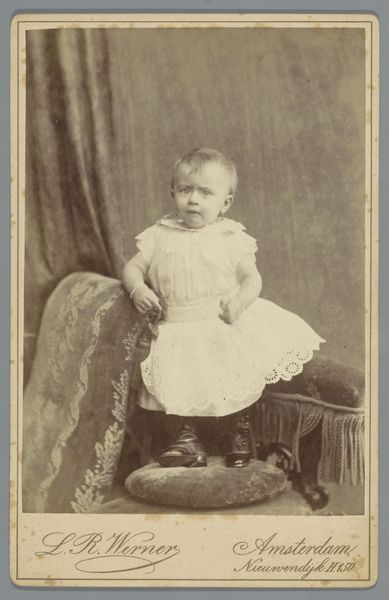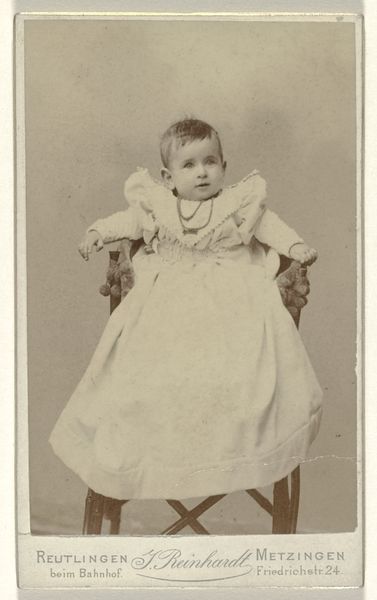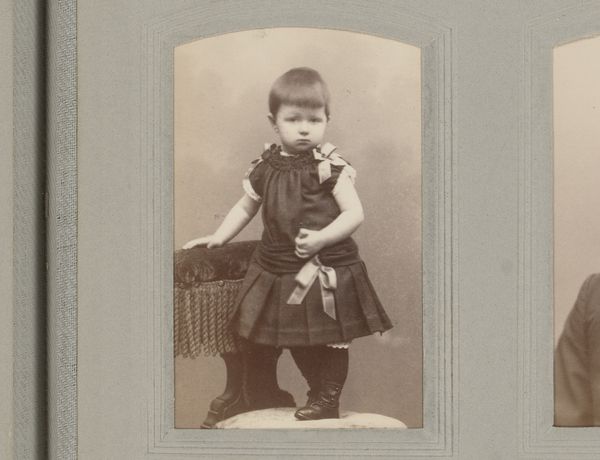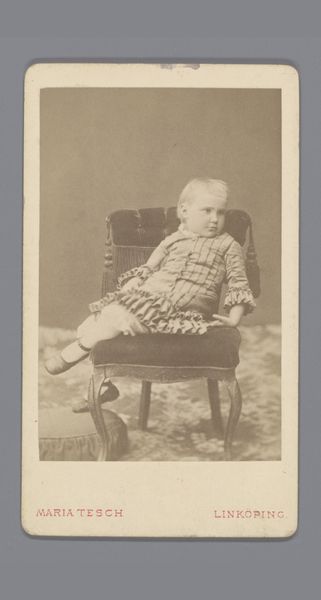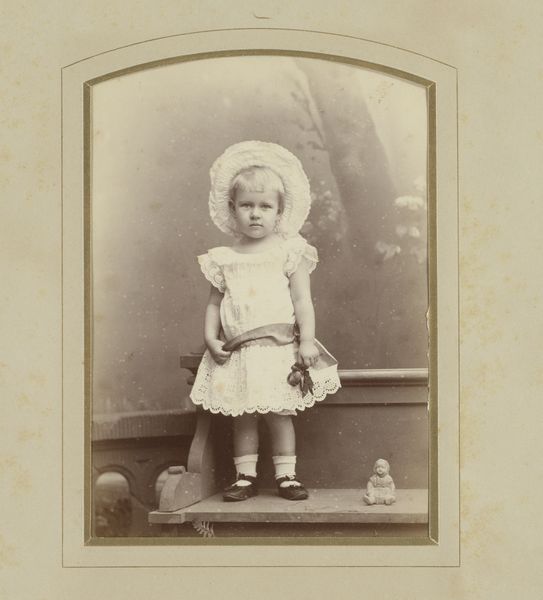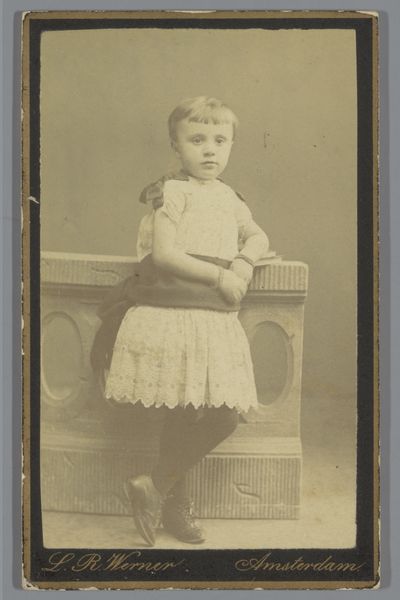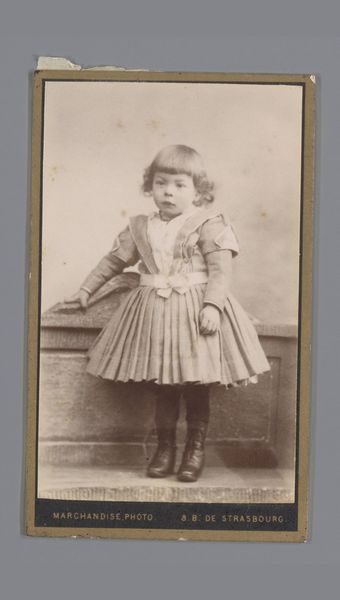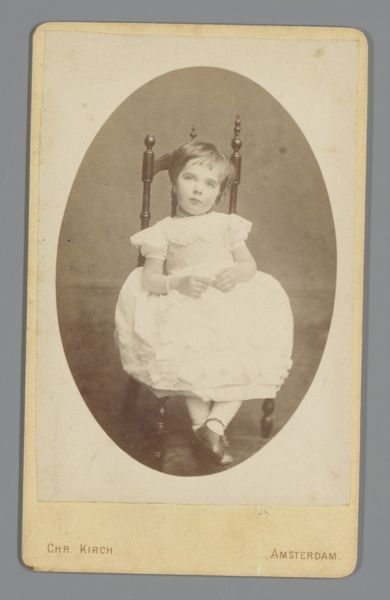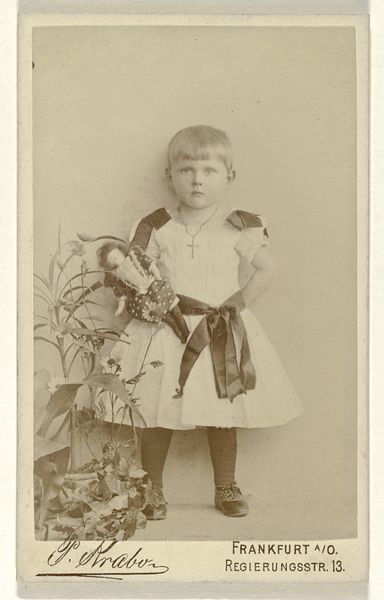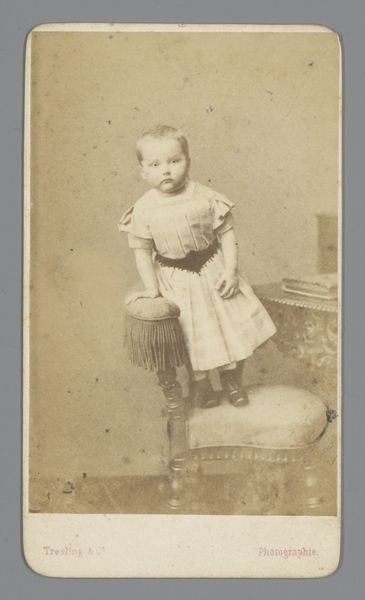
Portret van een staand meisje op een bank, aangeduid als Madelaine Nagels 1885 - 1906
0:00
0:00
paper, photography, gelatin-silver-print
#
portrait
#
toned paper
#
charcoal drawing
#
paper
#
charcoal art
#
photography
#
gelatin-silver-print
#
19th century
#
charcoal
Dimensions: height 137 mm, width 97 mm
Copyright: Rijks Museum: Open Domain
Curator: This is a photograph entitled "Portret van een staand meisje op een bank, aangeduid als Madelaine Nagels," placing it between 1885 and 1906 and indicating a likely sitter of Madelaine Nagels. It is composed using gelatin silver print, along with elements of charcoal art including charcoal drawing and paper techniques. Editor: What immediately strikes me is the rigid pose, and the doll-like quality amplified by the symmetrical composition. It feels simultaneously intimate and incredibly formal. Curator: That's insightful. Formally, the light is even, eliminating dramatic chiaroscuro which enhances that sense of removed observation. We must note how this method accentuates the texture of her clothing—especially that delightful lace collar—and the unusual rustic bench. Editor: Yes, and the backdrop! It seems to indicate a rather sparse, almost desolate, woodland scene. Placed together the soft woodland backdrop creates a striking juxtaposition of constructed versus deconstructed realities—a tension I'm unsure was consciously conceived, but still feels quite poignant in a historical context. It adds layers of symbolic interpretations that are so common in portraiture. I do wonder about the circumstances surrounding the taking of such image—was the setting real? Curator: Indeed, photography at this period had some rather limiting practices. It’s highly plausible that the studio recreated such elements of nature to imbue the photographic sitting with specific societal concepts, to further notions of childhood within controlled environmental compositions. Considering that this was labeled ‘portrait’ it is clear this had posed intention. Editor: Precisely. Knowing the sitter’s full name gives us potential research leads, potentially illuminating family history and social status. This unlocks a much richer understanding of this seemingly straightforward image, providing crucial cultural background. I notice a deliberate aesthetic choice in utilizing tonal paper, contributing to the timeless ambiance. Curator: And to bring all these formal considerations back together, that the limited colour palette does also reinforce the very nature of memory here as we consider this depiction. Editor: Quite. Memory isn't merely personal; it is also shaped through political structures, which include all elements such as dress code and art. This photograph, then, has given us insight into the visual lexicon used for crafting images in the late 19th century. Curator: Exactly, and considering these technical aspects help reveal aspects and deeper associations embedded with these historic periods.
Comments
No comments
Be the first to comment and join the conversation on the ultimate creative platform.
